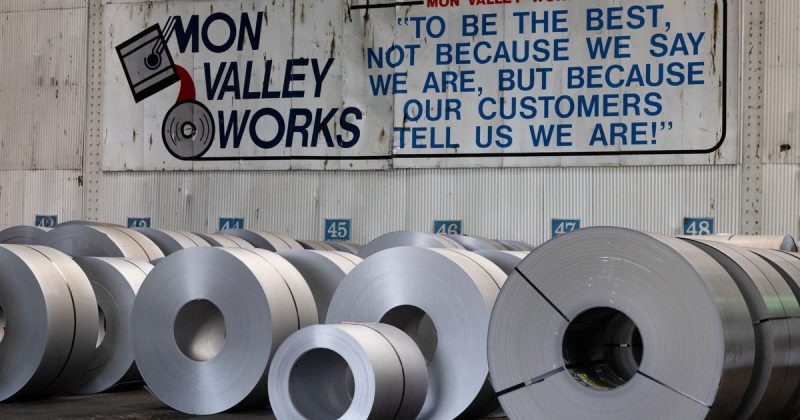
Major US steel companies saw their stock prices jump significantly on Monday following President Trump’s announcement that he would double tariffs on imported steel and aluminum. The move, which increases tariffs from 25% to 50%, sent shares of companies like Cleveland-Cliffs soaring by 25.2% in early morning trading. Nucor Corp. and Steel Dynamics, also major players in the steel industry, experienced double-digit gains before the market opened.
This dramatic surge followed a Friday announcement from the President. The original 25% tariffs, implemented in February under Section 232 of the Trade Expansion Act of 1962, were justified as necessary to protect national security. The new 50% tariffs are scheduled to take effect on June 4th, and have already provoked a response from the European Union, which stated that it is preparing retaliatory measures.
The EU’s reaction highlights the global uncertainty caused by this latest tariff hike. The bloc is currently in negotiations with the US and has expressed a desire to reach a trade agreement, but the President’s actions have significantly complicated these efforts. Adding to the complexity is a previously announced “planned partnership” between US Steel and its Japanese counterpart, Nippon Steel, a $14 billion deal touted by the White House as a job creator and a way to ensure American steel production for years to come. However, details on this partnership remain scarce.
The overall market displayed a mixed reaction to the news. Early Monday trading saw a degree of volatility, reflecting investor uncertainty surrounding the administration’s fluctuating tariff policies. This uncertainty was further amplified by recent legal challenges. Last week, the Court of International Trade sued to block tariffs imposed on China, Mexico, and Canada. While the market initially reacted positively to this news, the situation reversed after a federal appeals court temporarily suspended the trade court’s decision. The legal battle continues, but for now, the administration’s tariffs remain in effect—excluding those challenged under Section 232.
The situation remains fluid, with ongoing legal challenges and international repercussions adding to the market’s jitters. While the steel industry is celebrating a short-term win, the long-term implications of this escalating trade war remain to be seen.










